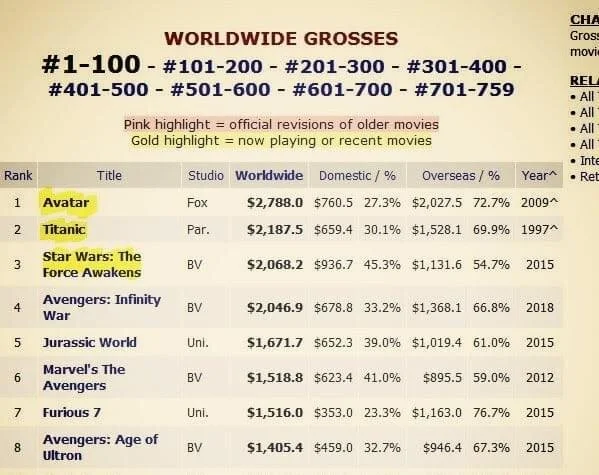The Shame Short: Betting against The New York Times (NYT) and "New Fox"
Media sector restructuring and coming round of legal actions will pressure social shame-driven journalism and those who have profited from it.
The year 2018 has been a bumper year for shame and humiliation, hasn’t it? But it won’t last, because ... it never does.
Shaming first and asking questions later has become the name of the 21st-century news game. November was the 29th consecutive month that the Michael Jordan of humiliation journalism, the Fox News Channel, was the number one domestic cable network. But imitators are seeing a similar pay day from contempt: Fellow media shamesters Cuomo Prime Time and the Rachel Maddow Show saw audiences grow by double digits. These are gaudy stats indeed in a media world burning through a generational shift away from dedicated sit-down television viewing, to a more fluid, and less profitable, binge watching done on mobile-devices.
Even the journalistic elites have done boffo in derision. No less than The New York Times (NYT) saw its market cap essentially double over the past two years. Basically on nothing but a steady diet of shaming the likes President Trump and Harvey Weinstein, which led to a Pulitzer Prize, among many awards. And gave the Gray Old Lady a cache she has been yearning for since the days of the Pentagon Papers. No less than Google, faced a global walkout after the Times ran a fairly simple story on how the Web giant suppressed allegations of improper workplace behavior. Every paper loves a riot, especially when they cause it.
Investors might be sucked into betting that shame is the needed tonic to give the flagging news media business a future. And that shame is the driver of a long bull market for a media sector decimated by two decades of darkness and decline in the face of digitization.
But if what we are seeing is indication, shame won’t save the news game. Because stories of dishonor and disgrace never sell, for a very simple reason: We humans are hard-wired away from shame.
Shame Never Sells
Human aversion to stories of shame and disgrace are essentially what define us as people. From our earliest recorded narrative, like the human cave paintings in places like Lascaux, France, renderings of animals, stars and us people were all about stories of wonder and awe. Our aversion to shame and bitterness in our storytelling has been passed down to use through time. Best-selling books, movies and TV of all time make it clear, that dis-grace is dis-interesting to mass audiences. Best-selling book lists have the likes of Don Quixote, Tale of Two Cities and Lord of the Rings as first second and third, respectively. Some TV and streaming media rankings list M*A*S*H and Dallas finales as the all-time leaders. While other more Web-centric lists place Game of Thrones and Planet Earth II as sector leaders. The highest-grossing films are Avatar, Titanic and one of the various Star Wars movies. Unless of course, you bring sports narratives in the analysis. And then it is all about the recreated drama of warfare, vanquishing enemies in the Super Bowl, The Summer Olympics, and the greatest of human dramas: the FIFA World Cup.
What do you notice about the narrative similarities of The Dream of the Red Chamber, Jurassic Park, or The Bob Hope Christmas Show? No matter what story you look at in this sales data, there are simply no massively popular top-selling books, movies or streaming media shows with angry lead protagonists. Certainly there are plenty of horrible bad guys and darker leads characters, like director Christopher Nolan’s rendering of Batman in The Dark Night. But the caped crusader in that franchise was always carefully rendered as a hero. These lists show that even hint of cynicism in lead characters dooms otherwise solid stories to relatively small audiences. As entertaining as hip revenge fantasies might be like DeadPool or Suicide Squad, these stories are number 84 and 96 in all times film sales for a good reason:
Audiences hate hate.
Hate Ain't Great
What distinguishes today’s most profitable storytellers are those that can scrupulously render uplifting characters into controversial topics to avoid shame. The vibranium of an example there is Disney’s blockbuster picture Black Panther. This boffo hit, is only the third film ever to push past $700 million in domestic box office sales. The secret was producers were careful to bring in an innovative young director named Ryan Coogler, who had the courage to create a racially and sexually diverse narrative that still made the bad guys the only characters driven by rage and vengeance.
The companies that have not learned that shaming is bad business are beginning to feel the sting of the investors' lash. Tech bellwethers Twitter and Facebook are seeing solid double-digit declines in their enterprise values as users boycott the services over concerns on social media’s ability to manage hate speech and shame on its networks. And last year Rupert Murdoch, the singular evil genius in the media business, threw in the towel on his media empire (after carefully scripted succession plans for his sons). He sold most of his 21st Century Fox assets to Disney, for a really pretty reasonable $52 billion. And then spun off his crown cable jewel Fox News LLC into its own independently traded public company, that is to be nicknamed the New Fox.
The spinoff sets the stage for markets to value the power of shame and disgrace in the news business. And that rationalization by public markets, will almost invariably delight short sellers – and confound long-term investors.
Bet Against the Weakest First
For all the branded chest-thumping of “Truth Still Matters” and “News That’s Fair and Balanced,” The New York Times and Fox News have now devolved into nothing more than smallish independent media companies loaded with all sorts of operational risks. And mainstream stock analysts sense the fragility in these operations. Last week, investment house Barclays slashed its estimates for the the Times, downgrading it to underweight from equal weight, as analysts realized that probably behind most of the run-up of NYT is past the stock. Leaving the same old millennial-market problems of new digital subscribers not growing fast enough, those that do subscribe not paying enough to cover costs. And Fox’s sale to Disney is expected to close Jan 1, 2019, which reportedly will trigger a round of layoffs that will trigger short-term charges. And Fox News' fortunes are tied directly to a cable TV model that will fade as it core older audience, well...dies.
A Round of Legal Actions.
But what is truly ominous for both companies long term, is that key characters in both operations' narratives of shame are beginning to have their published narratives unravel. On one side, New York State District Attorney's dropped several charges against shamed movie producer Harvey Weinstein. As his attorneys have managed to convince a Delaware bankruptcy judge to open access to thousands of new emails. Documents that apparently cast the fresh narrative of Weinstiens relationships to his accusers, Which fundamentally challenges The Times’ negative narrative of Mr. Weinstein.
And on the other hand, Michael Cohen, President Trump's former personal attorney, plead guilty to making false statement to Congress, last week, Which opens the Trump family to a fresh round of investigations. And fundamentally questions the positive of narrative Fox News’ coverage of President Trump.
What both twisted narratives do to a company the size of The New York Times and Fox News is open them up to direct legal attack. The very rich are now all too happy to fund retaliation to the news media. Last year, a billionaire named Peter Thiel, in open retaliation, funded a $130 million lawsuit between a former professional wrestler known as Hulk Hogan and smallish publishing outfit called Gawker Media. Even though the argument in the case was almost embarrassingly thin. Somehow, Gawker violated Hogan privacy for making a public video more public, Theil's war chest was enough to prevail in court. And Gawker was driven out of business.
How different, relatively speaking is The New York Times and Fox News to its shame-driven enemies as Gawker is to Peter Thiel? These operations have taken aim at some of the most powerful and wealthy people the world has ever seen. These terribly accomplished people have been shamed from their lives overnight, by both outfits. They have nothing but time and a lifetime of work to resurrect. And these are the grudges the create innovation: Already Mr. Weinstein is on record as saying he will sue The New York Times. And we can leave it your imagination the wealthy and powerful would die for a shot at Fox News.
The #PostShame News Era.
Where the news industry can find inspiration is in the great storytellers of the past who changed society without shame. When Cervantes penned Don Quixote 400 years ago, he was careful to make his #MeToo takedown of pattern-male stupidity a parody. And when Charles Dickens wrote Tale of Two Cities, this serial shamer who wrote such classics as Bleak House, knew enough to make his lurid bloody depiction of the French Revolution a heroic story of selfless love.
Today, there are several examples of ultra-targeted news outlets that innovate with out shame, like Sailing Anarchy, and Tennis.com, or maybe targeted science coverage in the likes of Science News. And we found Max Rose's recent win in a Staten Island House of Representative races a refreshing change in the dark narrative of shame.
But until the media business figures out a story style that is in line with the proven long-term success stories that have created real story value in the past, there will be no avoiding an expensive, bloody Dark Age to come in the news business. And age that will be particularly harsh on the smaller operations like The New York Times and Fox News that have leveraged their long term brands around shame, in the hunt for short term profits.
It won’t be pretty. But it will be profitable for the investors smart enough to bet against shame.




